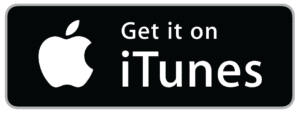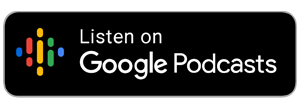Victor Antonio Gonzalez discusses how to design an effective strategy through sales psychology, studying the buying behavior of customers more closely.
Listen to the podcast here:
Download the audio file here.
Sales Psychology 101: Finding the Why in How People Buy—with Victor Antonio Gonzalez
Our guest is Victor Antonio Gonzalez. He has a BS in Electrical Engineering, an MBA and building a career as a top sales executive and becoming President of Global Sales and Marketing for a $420 million company. As Vice President of International Sales in a Fortune 500, $3 billion corporation at the time, he was selected from over 500 sales managers to join the President’s Advisory Council for Excellence in Sales and Management.
I’ve heard Victor speak live. I also followed his content for a while and I figured it was time to bring him on to the show. If you are in sales, which all of us are in sales one way or the other, this episode is for you. We go through the details of how you should structure your day from prospecting to closing, what is his one-liner that he uses for every sales meeting he attends and finally, what is the difference between a successful salesperson and somebody that’s not making it? What differentiates the two and how you could learn from it and be a better salesperson in the upcoming year. Without further ado, here is my interview.
—
Victor Antonio, thank you so much for joining me on the show.
Thank you for having me. I’m looking forward to this conversation.
I’ve said I follow you on LinkedIn for quite some time now. I love the content you share but as I always try to do is I want to start with a little background. Being many years in the field of sales experience, how did you know that this is your calling especially now that you are traveling the world and speaking on this topic. Tell us a little bit about the backstory.
That’s not so much that I wanted to be in sales. I’m going to give you a quick history of this. My family is originally from Puerto Rico. In the late 50s, my family moved to Chicago, where I was born and raised. My parents didn’t speak English. They struggled like any immigrant family. We were poor, food stamps, government cheese, powdered milk and the whole bit.
My mother said I was the last one and the youngest one. She says, “Go to school, get the education and job.” I decided to get Engineering. Why? It’s because of the money they paid as an engineer. Not because I was passionate about it or loved it, everybody thinks that. I go get my engineering degree. I graduated from the Illinois Institute of Technology with a Bachelor of Science in Electrical Engineering. Later on, I did an MBA and I did it for the money because we needed it. It’s not a complicated story.
What happened was I got into Corporate America. I was working for a wonderful company called Honeywell, the under seize division and test center. About three years after I started working there, I realized, “I don’t like my job.” It was hard for me to admit that because it took me five and a half years to graduate. I invested five and a half years, plus three now. I’m eight and a half years into this and we all understand opportunity costs.
Opportunity cost is not only the time you invested but the time you could have taken and invested in something else you liked. I had this existential crisis. What’s it all about? What’s going on? I remember moving around. I was doing hardcore engineering like software coding and testing components. If you can imagine me in front of oscilloscope testing, that was me. I said, “I’m not feeling this.” I decided to go into application engineering. The best way to describe hardcore engineering is you’re in the muck of details. You’re working with equations and all that.

As an application engineer, I designed a system but I put boxes together to make them work. That was a big difference and I liked that more. It allowed me to travel with salespeople and get an idea of what selling is. I remember I had a moment. This was a funny one and I tell this story all the time because it was important to me. At this time, I’m working for a wireless company. I’ve designed a wireless system and it was a $5 million deal. To make this long story short, we won the deal.
The sales guy is like, “I’m picking you up. I’m taking you out to lunch.” He says, “Where do you want to go?” I’m thinking the most expensive place I can think of is a steak house. We go to lunch. He said, “Order whatever you want.” I don’t order from the right side. I ordered it from the left side of the menu because I didn’t care about the price because he’s paying. His name is Ken.
I remember we had a beer. With a big piece of steak and a beer in my belly, I get back to the office. I’m super happy and then this engineer by the name of Roy says to me, “What are you so happy about?” “We just won a $5 million deal. I closed it with the sales guy. There are always negative people in your life that bring you down quickly.” As I always say, when somebody says, “Let me ask you a question.” It’s not going to go your way.
He goes, “Let me ask you a question.” I said, “What?” He said, “How big was the deal with this?” “$5 million.” My first system sold for $5 million. I’m super happy, stoked and we beat up Motorola at the time. That was a big win for me. He says, “Okay and Ken took you out to lunch.” I’m not only thinking about lunch. He bought me the most expensive steak. I have a beer in my belly and I’m happy as hell.
He says, “How much do you think he spent on you?” “At least $50.” He goes, “Last question, Victor. How much commission do you think he’ll make off of your system design?” I was like, “What?” I go, “I don’t know.” He says, “Conservatively, it’ll be $50,000 off the first phase. I hope you enjoyed your $50 steak.” I was like, “What just happened to me?”
That was the first inkling that I should be more into sales. The second part was as an application engineer, I was traveling with salespeople. I started traveling to Latin America. I traveled with a gentleman by the name of Jose Santana and from him, I learned how to talk to people. Every time he visited a customer, everybody stopped and wanted to talk to him. I’ve never seen a salesperson treated like royalty until this guy. I started traveling to Latin America. I was his application engineer because I could speak Spanish.
Fast forward another year, we had a child. Two years into this, my wife said, “I wonder if I can stay home.” I said, “An opportunity to sell in Latin America just opened up.” I said, “The trade-off will be as I’ll be traveling a lot, but I can make a whole hell of a lot more money.” My wife’s like, “Do it quickly.” I was like, “I don’t know how to take that.”
She was like, “Sure, go.” That’s how I got into sales. It’s like when you feel you’ve found something that you’re good at. I had the trifecta going. One is I can communicate. Two, I can communicate in Spanish. Three, I had a technical background and those three things worked in my favor. From then on, I never looked back.
This is fascinating because there’s a story behind a career path, so to speak, that opened up that opportunity. It’s important for our readers because sometimes you will sit there and wait for the opportunity to come your way and sometimes it’s right in front of you, but you have to see it and you have to pursue it. I appreciate that story.
This episode will be all about practical tips when it comes to sales and some of those episodes to when I know that my audience loves the topic. I’ll put out some, “I’m going to be interviewing somebody on sale. Do you have any questions?” You could imagine how many questions came in, especially at the last week of 2021, when people are looking at their old quota from the year. Either it’s positive, negative or somewhere in between.
[bctt tweet=”What counts is not your competence as a salesperson. It’s about giving customers enough competence to make the best buying decision.” username=””]
First, I want to speak about the human element of building relationships. You mentioned that and you also mentioned something very important, which is you had a technical background. How much does that play a role because we see a lot of young people coming into sales? Something I have shared so many times when I speak to salespeople is that you got to be fair with the expectations.
You starting off with something new and you’re trying to compare yourself. If somebody has a book of business for the last several years, that guy’s making a few hundred thousand dollars because he’s been several years in the field. He has technical experience. You’re learning everything at once like communicating, sales, the industry and everything else. You got to be fair with yourself and the expectations. What would you say comes first for somebody that wants to enter sales? What’s the balance on that?
I’ll answer this in two ways. Let’s say you have a technical background and you’re selling technical products. You have an advantage already. That doesn’t guarantee you’re going to be successful. You have an advantage. You now have to learn how to communicate that value, but let’s say you have a Liberal Arts Degree. You studied the History of Art and you got a Bachelor’s Degree in the History of Arts and you want to jump into the technology business.
Your job is to fast-track your learning curve and how do you do that? You can do it in several ways. One is to study the industry, everything in that industry and understand it. Number two, I found this to be like a treasure trove for me. I would go to maybe the engineers but typically the product manager. The product manager runs the engineers.
The product manager typically has an idea of why he developed that product. What was his vision for the market? I would talk to the product managers like, “Why did you design this product? Who’s it serving? What’s our segmentation, so forth and so on?” You absorb that from the product manager. You walk over to the engineers and you have them test you, “Ask me tough questions that you know your customer’s going to ask you.” Let them beat you bad.
I want you to walk out of that room mentally bloody like you didn’t get anything right, go back and do it again. When you talk to engineers who want to help you like a product manager as well, when you talk to them and say, “Test me. Hit me with every question they could possibly ask.” You begin to prepare yourself. You don’t need a technical degree. You have to have the resolve to want to learn the technology and not go in there to try to wing it or fake it. Take the time, slow start and try to learn it. It builds your confidence going into a conversation. That’s the difference.
I hear people talk about, “Sales is 80% competence.” I don’t know if I can give it that balance. I think it’s more like a 50/50. People can smell when you don’t know what you’re talking about. When you know what you’re talking about and you give clients that confidence because that’s the key. It’s not about your confidence. That matters. I’m not saying it doesn’t. This is the irony. It’s about you giving the customer enough confidence to make a buying decision. That’s the difference.
I can have all the confidence in the world. I can present the product, but if my customer doesn’t have the confidence to make a decision, they simply won’t. That nowadays’ market. Customers want to feel that confidence, “Am I making the right decision?” They need you to assure and assuage any concerns they may have and let them know that’s the right decision.
You got something to talk about, which is finding the why and how people buy. Let’s talk about that.

Years ago, I’m at an airport in Salt Lake City, Utah, on the way to an event. I saw this book by Dr. Robert Cialdini called Influence. I’m like, “What is this book? I’ve never heard of it. Let me pick it up. Let me read it.” By the way, it’s highly recommended, still to this day. It got into consumer behavior or behavioral economics and consumer psychology. Once I read that book, I started going down the rabbit hole of behavioral economics, influence, persuasion and how it works but not the techniques.
I’m not talking about neuro-linguistic programming. I’m talking about the science behind why people buy? Why do they make those buying decisions? A simple example is I always point out as if you get two options. People who don’t have high confidence will go with the cheaper option to mitigate the risk. If you give them three options, they typically choose the one in the middle. It’s simple psychology but it’s interesting when you begin to understand that. How you position or frame a conversation with your client.
I was reading all this stuff on behavioral economics and consumer psychology. I was like, “I don’t think I’ve seen anybody apply this to sales.” I remember I registered the domain Sales Influence and I came up with finding the why and how people buy? It’s understanding why people make buying decisions. Finding the why and how people buy is a study of decision-making. How do people make decisions? Once I started exploring that topic, I think on YouTube, by itself, I have 1,500 plus videos because there are so many permutations. There are many ways you can use influence to guide people, not pressure, not push, to make a buying decision.
This is so important because, as you mentioned, “The confidence of the consumer helps you build your own confidence as a salesperson as well.” It goes both ways. However, when they’re unsure, not knowing and not being the guide in the process, you’re leaving the person to make a decision, “What should I do? I should call for another meeting or should I speak to another vendor,” so on and so forth. That’s an important point that you’re mentioning.
I want to speak a little bit more high level as well. Sometimes you go in the room and you have been in hundreds of those rooms where after a keynote speaking engagement, people will come over to you. Sales for everybody is, “Am I made for sales?” It is that conversation. Some people will try to box themselves into, “I’m introvert, extrovert.” Let’s say it as it is. Is sales something that a person could learn and be good at sales? Are there people that are not made for sale?
It’s nature versus nurture and I believe it’s nurture. Anybody can be in sales. One of the biggest misconceptions is that you have to be an extrovert. I became, eventually, in my career path Vice President of Sales for Latin America and I had this guy, his name was David. Did you ever see that cartoon, the puzzle where it says, “Where’s Waldo?” You got to find that little figure, Waldo. If you know what I’m talking about, David looked like Waldo.
He was the nerdiest and the most soft-spoken guy. The guy had the personality. He wasn’t an extrovert, but he was very reserved and this guy would kill his quota every year. He kills it. I remember I went to Puerto Rico and I was traveling with them. I was doing a customer business. David walked out of the room for some reason to go get something in a car. It was some type of sample or demo he was going to show.
It was a cable company. I asked him, “What is it about this guy that you like?” It was a well-formulated question. I’m giving you a short version of it. He said, “Victor, one, he knows his product. Two, when it comes to business, he’d never come to sell us anything. He comes to show us things and what new products are available. If we want to do a demo, we do a demo, but we never feel like this guy’s ever pressuring us.” I’m like, “Okay.”
It’s like, you feel this model in your head has been broken. The backup to that is that he was very consistent. He tracked all his customers. At that time, we were using low-level CRM but he tracked his customers and he was always visiting them. This was B2B sales strategies. That, to me, was the day I figured out you don’t have to be an extrovert to sell.
In fact, Adam Grant came up with a phrase called ambivert. I think Daniel Pink talks about it in his book, To Sell Is Human. He highlighted this study that was done. They looked at the introvert-extrovert and those who fell in the middle. They measured their sales and the ambiverts won. The ambivert is part extrovert, part introvert.
I think we all are, to some extent, that blend or that mix of that. If you’re a little more introverted, that’s okay. You need to push out a little more and learn how to speak better with more confidence. If you’re an extrovert, you need to shut up once in a while, listen and be more patient. Anyone can be in sales.
I want to ask you a specific question that came in through one of the readers on the show and this is more of a practical question. Sometimes you leave a sales meeting and you are so confident. You go back to the office and say, “Yes, I nailed it. This deal is happening.” You are almost counting the money, only to find out three days later that the other party is not at all interested. How do you pick up from a conversation that you’re so far apart?
[bctt tweet=”Figure out your best rhythm during the day to achieve a creative burst. That way, you can be more efficient and productive.” username=””]
I’ve been there. I lost a deal that was $1.2 million. I got the letter a week later after the visit and I’m like, “What?” I remember I framed that last letter and put it in my office. That told me, “From now on, we truly verify.” How do you do this? Let’s do an autopsy, a post-mortem on the actual meeting. Most of us think because we’re doing all the talking and we’re answering all the questions that the meeting is going well.
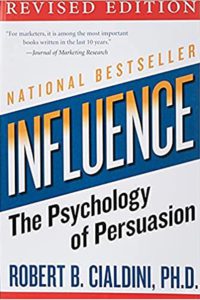
Now, let’s look at it from the customer’s perspective. He’s seen five other vendors already. You’re saying things you already know. He says, “Yes, I understand. It’s a great product you have.” He’s going, “Yes, of course.” All of a sudden, that engagement seems so fluid that you’re walking out of there going, “I think we got this. There was no resistance.” We never asked ourselves why there was no resistance?
One, they already made the decision not to give it to you. That was one of them. That could be the one. Number two is that they’ve heard all this stuff before. You’re not telling them anything new you’re creating zero value. What I find that salespeople do and myself included back in the day, but now, I’m different, and that is you don’t confront the salesperson.
This is why I love the book, The Challenger Sale. It’s my favorite sales book. I put it in my top three. I love that book because it talks about the five different types of salespeople. If you’re reading, you got to read the book. The Challenger Sale came out a few years ago. It doesn’t matter. It’s still relevant nowadays.
There are five different types. If I can remember, there’s the challenger, the maverick, the lone wolf, the relationship builder and the hard worker. What they found in the study, whether it’s a simple sale or a complex sale, relationship salespeople did the worst. When the economy was up or down, relationships salespeople did the worst.
Let me be clear because everybody picks on this book because they misinterpreted. This is not to say that you shouldn’t have a relationship with your customer. That’s not what I’m saying. The book says we all have all five architects within us, but one is more dominant. We are relationship builders, hard workers, mavericks, maybe lone wolves sometimes, but also, we need to be challengers.
There’s a Venn Diagram. It’s to teach for differentiation, why we’re different, tailored for resonance and number three is to take control of the conversation. If you can overlap those three, tailored for resonance, let me make sure it aligns with what you need and teach for differentiation, “Here’s why we’re different.” The last part is don’t be afraid to take control of the conversation. The overlap of that Venn Diagram is where the actual challenger lies.
Now let’s go back to answering the question. When you leave a meeting, did you ask any thought-provoking or challenging questions? For example, if I’m leaving a meeting, here’s my favorite line, “You wake me up at the dead of night and I’ll answer this all the same, ‘Victor, what’s your closing line?’” “Is there any reason we shouldn’t move forward with this?” That’s my line. That’s it.
There’s a statement that says, “I’m more afraid of the guy that practices one kick 10,000 times.” You don’t need a lot of closes. You don’t memorize 101 close. You have to have one and that’s mine, “Is there any reason we shouldn’t get started?” I do variations of that. I know that when I get to the end, I’m going to ask that question. I’ll ask more questions to make sure that they’re with me and they’re tracking. You can even change it if you don’t like my phrase, “Is there any reason we shouldn’t get started? Is there anything that would hold us back from moving forward? Is there anything that puts us outside the bounds of us doing business?”
Figure out your phrasing but I always ask the question at the end and then I watch for their reaction. “We like your product.” I’m like, “That wasn’t good.” “We’re going to think about it.” “That’s not good.” I want to know and I think a lot of salespeople don’t want to know. That’s why they don’t ask the tough questions in the meeting.
As I’m doing the presentation, you can visualize this if you’re reading this. I got 30 minutes with you. I know what I’m going to do in those 30 minutes. I got it down that I don’t even have to think about what I’m going to do. In there, I also have test questions. Does this line up with what you’re trying to do? Is there any reason you wouldn’t implement this? Figure out your test question. When you get to the last question, is there any reason we shouldn’t get started?
It’s almost like an airplane coming in for a landing. That’s the best visual I can give you. A lot of people fly and they get clumsy at the end it’s almost like the plane is dropping. There’s no gradual, “Here I am.” There’s no reducing of resistance throughout the presentation. A lot of salespeople, what they do is they walk out the roads and go, “That didn’t go well.”
You go to your manager and the manager goes, “How did the meeting go?” “It was good. I said this. They said that. They had everybody in there. All the decision-makers were there. All this good stuff is going on.” The manager is going to ask you, “When will they make a buying decision?” The salesperson goes, “We never got into that.” “Is the budget been allocated??” “Yeah, I think so.” You see it unraveling very quickly.
You mentioned it between the lines, which is that a salesperson is so upbeat, they don’t want to hear anything negative. Therefore, they’re afraid to go there, but ultimately, they’re hurting themselves.
That’s the line, “They’re afraid to go there because they almost don’t want to see it. They don’t want to look into the abyss.”
They’re chasing a lead that’s way gone the other way ready.
I had a lady who once said to me. She said, “Victor, I’ve been calling on a customer ten times and they haven’t bought. What should you do?” “Move on.” That’s what I said. Here’s what’s interesting. I hang out with Grant Cardone. We did a three-day boot camp together. I don’t know if it was his line, but I heard it from him. He said, “People don’t have a closing problem. They have a prospecting problem.”
The visual he gave was something along these lines. If you only got two customers in your pipeline, you’re going to sell desperately because you desperately need to close 1 or 2. Now flip the psychology or not prospecting is a big deal. I’ve got 100 people lined up at the door wanting to talk to me about my product and service or 100 people in my pipeline.
What is the first thing I’m thinking? Those who have a budget, to this side of the room, those who don’t have a budget or need, please move to that side so I can get started. It’s a totally different mindset. People don’t have a closing problem but someone wants to have an opening problem. That’s opening and finding more prospects to put in their pipeline.
Let’s speak a little bit about prospecting. Sometimes you have salespeople that get a little comfortable with their client base. Let’s say they have a bunch of clients and they dry off the first wave of prospecting. What is the proper mindset or setup of a day, week or month of a successful salesperson? How much effort does it need to go into prospecting? How much goes into fulfilling and working with your existing relationships?
[bctt tweet=”The two biggest attributes any salesperson can have are consistency and communicating their value.” username=””]
That depends on the type of sale you’re doing. I’m not going to run for the question. I’ll tackle the question. For example, you sold an enterprise, software product or SaaS product. You want to keep that pipeline churning and burning. As I say, you’re going through a lot of people very quickly. You’re doing mass emails. With this day’s CRM, technology and automation, you could hit a lot of people. We’ve all seen these emails or texts that come through LinkedIn and you can tell. I’ve had people say, “Victor, are you interested in starting your own business?” I’m like, “Did you not read my bio?”
I love it when people are trying to sell me a branding service when we have a branding agency.
“Did you read my profile?” The downside of that is that there’s no customization or personalization. People would say, “We do hyper-personalization.” That depends on what product or service you’re selling. What I did and I think I was very good at it, is that I segmented markets. I’m a believer and I go deep into a niche.
For example, one of my coaching clients sells supplemental insurance for lawyers. That’s very specific for lawyers. He understands that market so well. He understands the nuances of legal. He understands how these lawyers get hired, how they get fired, how they move from company to company and what are some of their goals? He understands the psychology of lawyers and he focuses on that niche.
I’ve asked him, I said, “You can go to another.” He said, “I could, Victor, but this one, I got wired. I understand psychology. It’s easy for me to sell.” He has this cadence where he’s reaching out to his customers. His strategy is for the first three months is all warm-up. By warm-up, you connect with them on LinkedIn and have general conversations. You’re not asking for anything for three months. It’s like the foreplay. You’re asking, trying to connect and you know who you need to connect with.
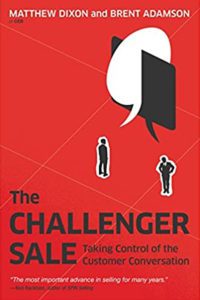
If you’re selling a big-ticket, that’s a little easier in the sense that you can reach out to people, let’s say, for ten companies because if you can get into these ten companies and get half of those to buy something, your quota is done. Let’s not oversell it though. In each company in a B2B complex sale, you have anywhere between 6 to 11 decision-makers. If you run the numbers and you’re going out to ten companies, you multiply that by the middle, which is six decision-makers. That’s 60 contacts. I think that’s the approach. I’m very focused, myopic and going aftermarket because if I understand it, I know I can win.
When we speak about insurance, you mentioned before about the other thing in life insurance that those companies do a lot of training and it’s all about how many appointments and meetings? I say, “Forget about the outcome. Focus on the inputs. You get rid of them.” Do you believe in that as well that you got to have that rhythm of how many meetings are you scheduling and how many follow-ups do you have?
I believe in the power of CRM. Years ago, the CRM was viewed like a KGB agent. The managers are like, “What’s he doing? What’s the working on?” Now, you can’t manage your contacts without a CRM and putting the data in. If you’re in sales and you’re not using a CRM, why not? If you’re not updating your CRM, why not? You’re handicapping yourself.
What I would do is and I would recommend to anybody reading this because I hate numbers in the sense that you should do 100 calls or dials a day. Here’s what you should figure out. This is the big statement or philosophy, “What you do now, in three months will bear fruit.” Let’s use that as an example. That means you got to start working now if you want to earn something in three months.
You have to ask yourself, “How many calls do I want to make a day?” Depending on your industry, you can find out what other people are doing. Again, one of my other coaching clients gave me a new guy and all their salespeople were doing 50 to 60 calls a day. His name is Michael. I’m talking to Michael and he says, “Victor, what’s a good number for me?” His boss is in there with me on this conference call. I knew his product and the service they were offering. They were a financial advisory company. I said, “You can do 100.”
The manager jumps in and he says, “That’s a lot.” I’m like, “I’m having a moment right there. Did you tell him he can’t do that many?” I said, “I know people who are doing 110 to 120 calls a day easy. I know you can do 100.” We walked through scripts. I helped them with the scripts, what to say and how to qualify quickly? Get them on the phone, qualify them, get off the phone. It’s all about going through and finding the people who are interested.
A week later, he reported his number in Salesforce and sure enough, in one week, he did 506 calls. He’s using Gong. In other words, he needed a mindset shift. It was interesting how his manager was like, “That seems like a lot.” I’m like, “I’m trying to push this guy to get to the next level.” Now I’m sure that he’s probably going to go back to his other team and say, “Why aren’t you making 100 calls a day?”
I don’t know what the number is. I’m not trying to give you a number or a rule here. I’m asking you to simply consider, as you move up the complexity chain, you have to make less calls. As you move down the simple sale, you probably have to make more calls. You have to decide. What I would do is I like to pull the door open. This is why you work on something for 25 minutes, you take a five-minute break. Maybe do two hours of those.
I noticed for me, Daniel Pink, who I mentioned earlier, wrote a book called When. He talked about our circadian rhythms when we’re high and when we’re low. He said the majority of us, between 5:00 to almost 10:00, we’re like in hyper-focus mode and then after that, we begin to die, especially after lunch. At 2:00, it goes south. Somewhere at 3:00 or 4:00, mentally, you ramp up again.
I asked you if you’re reading this, figure out what your rhythms are and then midday, he says, “When you can’t focus, that’s when you do the administrative work. That’s when you get on the CRM and enter in all the data because you’re not thinking, you’re doing brain dead work.” Every person, if they can manage their time, figure out what their rhythm is during the day, I think there’ll be more efficient. The last point on that is that he said, “From 5:00 to 9:00, people have a creative burst.” He said, “That’s when you do your innovative, creative thinking.” I thought that was very interesting. The book is called When by Daniel Pink. I highly recommend it.
One thing I was thinking while you are answering the last question is that one of the things that salespeople struggle with is when they go into sales, they’re trying to follow all the rules. It has zero rules because depending on who you are, I remember I was at a sales session years ago and somebody was speaking about sales. Afterwards, people were huddling around and asking questions. Somebody asked the speaker, “What’s the rule about making phone calls on Monday morning?”
The person said, “Is it a good thing or not?” The salesperson at the bigger side said, “I’m not sure if it’s a good thing or not, but it doesn’t sound like you’re a good salesperson.” He says, “Why?” He says, “Depending on what type of phone call it is.” If the person told you to call me, you got to make that phone call. If you’re making a strange cold call, you wait a little later in the week or later now, which means there are no rules and you could find five salespeople on a panel. Everybody will give it differently.
What you mentioned, using your time wisely is probably the common denominator, regardless of how you do sales, using your time properly, focusing on the low-hanging fruits and the relationships that you’ve been building. Make sure that the prospecting is right so you’re not bringing in the wrong people in the funnel and you’re not chasing the wrong people in the whole process. I think that would be important. Let me ask you a more broader question. You’ve seen so many sales teams, larger teams and ultimately salespeople individuals. What would you say if you have to put it down to 1 or 2 things that separate those successful salespeople and the mediocre or people that are barely making it?
The biggest attribute any salesperson can have is consistency and then the second one is being able to communicate your value. If you can pull those two together, communicate your value and be consistent in everything you do, that to me are the top two attributes. If you’re consistent, you can communicate and that drives the third C, which is confidence. You start building this confidence.
[bctt tweet=”If you are a manager and the people under you are selling more than you, that’s a good sign that you are doing a great job.” username=””]
Let’s tie these shoes together and that is, you figured out what your cadence is, the calls you’re making, but then you figure out what am I doing within these cadences? That’s what I love about CRM. You can figure out, “Do I send a cold email first? Do I do this? Do I think that?” You can program out how you want to go after clients?
The other thing is when you finally get to the actual connection, we’re having a Zoom call here and we’re talking to the client, you have to be able to communicate the value effectively and quickly. Nowadays with virtual selling, remote selling, distance selling, call it whatever you want, the timeframe has been compressed now.
If you’re used to doing an hour, do 20 to 25 minutes. I’ve had people say to me, “I don’t know if I can do it that quickly.” I say, “You need to tighten up your presentation,” because I think this is harder doing it virtually. Eventually, we’ll go back to a lot of face-to-face but right now, we’re at a 50/50 split somewhere in terms of hybrid versus face-to-face.
I think consistency, communication, build your confidence, and use scripts up to a point like I did. I learned my scripts and then I improvised my scripts. I always tell people, “When you’re going go off script, make sure you hold the centerline, though.” The centerline is the narrative of the story that you want to tell.
Again, back to my plane analogy. If I’m talking to you for 20 to 25 minutes, I know how I’m going to start the presentation and what my last question is going to be. I tie that all together. In my Sales Velocity Academy, I talk about blocking objections. I think that’s a big one. In the presentation’s module, I talk about sequencing, what to say first versus what to say second? That blows people away. Getting back to influence, if I can give you one example, because what you present first versus what you present second matters.
They did this study where they showed people a glass and the water was halfway. They said, “It’s half full or half empty.” The majority says, “It’s half full,” because they’re an optimist. He says, “No, it depends on what you show the customer first.” He said, “If you walk into one room with an empty glass and you fill it up halfway,” the majority will say, “It’s half full.” If you walk into another room with a full glass, empty out half of it, the majority would say it’s half-empty. In other words, sequencing, what you say first versus what you say second, matters. Many people don’t think about this in their presentation, what you say first versus once you say second.
When I did my presentation in Connecticut, I knew exactly what I was going to say and where I was going. That’s why when we interacted or people said something funny, I knew I didn’t lose myself because I knew what I was going to present. I think people need to get to that point and that’s where the confidence builds.
Sometimes the educated consumer tries to confuse you. They want to see how you know your game. They throw a question and they want to see how you’re going to react to it. It has been a lot of fun and time is flying by. Where can people find more about you and tell us a little bit more about how people could consume some of your content there?
It’s very simple. It’s at VictorAntonio.com. I’m all over @VictorAntonio, everywhere on Instagram and YouTube, so forth. The Sales Velocity Academy, which is where I have a lot of my content, is also on the VictorAntonio.com site. If you’re reading, if you have chosen sales as a professional career, this is an awesome career. You can make some good money and have a good lifestyle.
Plenty of business owners told me my salespeople make more money than I take.
That’s okay. If you’re a manager and your salespeople make more money, celebrate that. I believe in good, solid, healthy compensation plans. I’m the guy that I believe in bonuses, accelerators, pass 100%, we’ll do this. People begin to sell like mad people. If you’re a manager and your people are selling more, that’s a good sign.
Let’s close with the four rapid-fire questions. Number one, the book the changed your life.
The 7 Habits of Highly Effective People, specifically the chapter on the Circle of Influence, where it talks about what you can control versus what you can’t control? What do you focus on? If I can give you a second runner-up on that, Learned Optimism by Martin Seligman, which talked about that when you feel helpless is what you say to yourself that changes your mindset.
Two, a piece of advice you got that you never forget.
I’m in college and I’m interning in Chicago. There was this guy named Rob Ron. I ran the cameras for the 5, 6 and 10 news. I worked at WMAQ, which was NBC in Chicago, at The Merchandise Mart. I remember I always talked about how I wanted to go into audio. I want to learn about audio. I can talk about audio ad nauseam.

One day, we’re at lunch and this takes a sad turn. I must’ve mentioned it again this Rob, who’s one of these crotchety old guys. You can imagine he’s grumpy all the time. He said, “God, enough of this crap. I’m tired of hearing about this crap.” I’m only twenty maybe. It exploded on me loud in the lunchroom. His final words to me were like, “Stop talking. Either you do it or you just shut up.”
I remember I wanted to cry at the table. I might’ve cried after I left the table because it was brutal. That hard lesson taught me something. I’ve developed this intolerance for people who keep talking about what they want to do and it’s the same story every year. Either do it or shut up. That was the best advice I ever received.
Number three, anything you wish you could go back and do differently?
Zero. I always say that because if you like where you’re at, don’t mess with it. It’s like the butterfly effect. You know how you change one thing, everything messes up. No, I’m good. The question people should ask is, “Are you happy where you’re at?” The answer is yes. I’m good. I’m okay.
The last and final question is, what is the one on your bucket list to achieve?
Years ago, everything I wanted to do, I did. I’ve been living on what I call gravy now. Gravy is like, “That’s a cool experience.” I’ll give you two examples. One is I’ve always wanted to meet Zig Ziglar. I finally met Zig Ziglar and then got a show on the stage with Zig Ziglar. It was like, “I did that.” I wanted to travel internationally. I’ve been to places like the Middle East, Dubai and Saudi Arabia, all these wonderful places. I’m like, “I never thought a kid from the hood, food stamps, government cheese, powdered milk, gangs, drugs, would be traveling.” I don’t know if you noticed, but I have my own television show on the Paramount Network. Did you know that?
No.
I got a full season called Life or Debt. It’s a full season where I’m the host of the actual reality show and it’s such mind-blowing. All these wonderful things have happened to me. I’ve been with my wife for many years and got wonderful kids. That’s why when people ask me that question, I go, “I don’t know.” Everything on top of that, I just cherish. Whatever comes my way, I’m taking it. As you get older, I think you realize that what you want out of life is peace, tranquility and to enjoy life.
This is touching, especially after what we’ve gone through in the last several years with so much uncertainty in the world. If we could be healthy, we could be around. If we can make the world a better place with what we are teaching and preaching, that’s amazing. Thank you so much for joining us. I know your time is valuable. That is why, in the name of our readers, we will forever be grateful for sharing some of your time with us.
Thank you. Have a great day.
Important Links:
- Victor Antonio Gonzalez
- LinkedIn – Victor Antonio
- Influence
- YouTube – Victor Antonio
- To Sell Is Human
- The Challenger Sale
- Salesforce
- Gong
- When
- Sales Velocity Academy
- @VictorAntonio – Instagram
- The 7 Habits of Highly Effective People
- Learned Optimism
- Life or Debt – Amazon Prime
About Victor Antonio Gonzalez
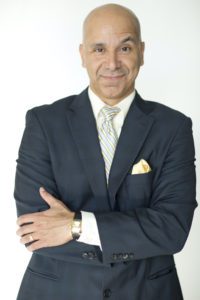 Victor earned a B.S. Electrical Engineering, an MBA and building a 20 year career as a top sales executive and becoming President of Global Sales and Marketing for a $420M company.
Victor earned a B.S. Electrical Engineering, an MBA and building a 20 year career as a top sales executive and becoming President of Global Sales and Marketing for a $420M company.
As Vice President of International Sales in a Fortune 500 $3B corporation at the time, he was selected from over 500 sales managers to join the President’s Advisory Council for excellence in sales and management.
He has shared the stage with top business speakers: Daymond John (Shark Tank), John Maxwell, Paul Otellini (CEO of Intel), and John May (CEO of FedEx Kinkos).



